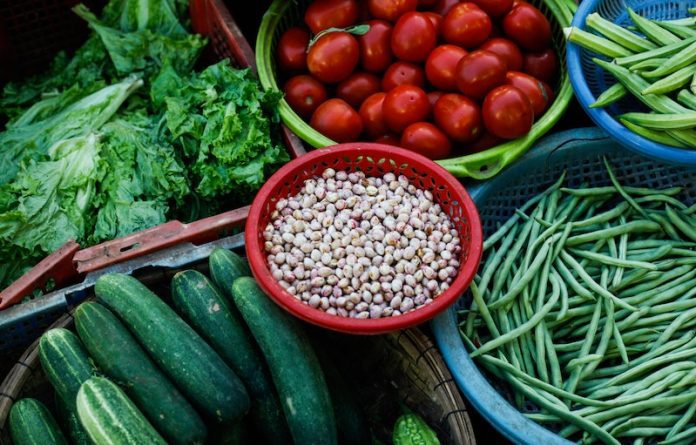
Ovarian cancer is a serious health concern that affects women around the world.
Despite extensive research, it is still unclear how dietary antioxidant vitamin intake affects ovarian cancer survival.
To shed light on this topic, researchers in China conducted a study to see how dietary antioxidant vitamin intake could affect the survival of women with ovarian cancer.
The researchers looked at a group of women who were part of the Ovarian Cancer Follow-Up Study. This study included women with ovarian cancer who were aged 18 to 79 years during 2015-2020.
The researchers collected information on the women’s diets and their intake of antioxidant vitamins, such as vitamin A, retinol, α-carotene, β-carotene, vitamin C, and vitamin E, through a questionnaire that asked about their food intake.
The researchers followed the women for some time and recorded how many of them died during the study period.
They then used statistical models to evaluate how the women’s intake of antioxidant vitamins affected their overall survival rates.
The study found that women who ate more vitamin C and β-carotene had better survival rates than those who ate less.
Vitamin C is found in foods like oranges, strawberries, and broccoli, while β-carotene is found in foods like sweet potatoes, carrots, and spinach.
However, the other vitamins the researchers looked at did not affect ovarian cancer survival.
Interestingly, the researchers also found that the effect of vitamin C on survival may depend on the presence of residual lesions. Residual lesions are areas of cancer that remain after treatment.
This suggests that the effect of vitamin C on survival may depend on the stage of ovarian cancer and the extent of treatment.
Overall, the findings of this study suggest that eating more vitamin C and β-carotene may improve the survival of women with ovarian cancer.
However, more research is needed to fully understand the relationship between dietary antioxidant vitamins and ovarian cancer survival.
It is also important to note that other factors, such as genetics, age, and lifestyle factors, may also affect ovarian cancer survival.
Therefore, it is important to work closely with a healthcare provider to manage ovarian cancer and improve the chances of survival.
How to prevent ovarian cancer
Preventing ovarian cancer is not entirely possible, but some steps may help reduce the risk of developing this type of cancer. Here are some tips that may help:
Use birth control: The use of birth control pills for at least five years may lower the risk of ovarian cancer. Women who have had a tubal ligation or hysterectomy may also have a lower risk.
Breastfeed: Women who breastfeed for a year or more may have a lower risk of ovarian cancer.
Maintain a healthy weight: Obesity has been linked to an increased risk of ovarian cancer, so maintaining a healthy weight through a balanced diet and regular exercise may help reduce the risk.
Eat a healthy diet: Eating a diet that is high in fruits, vegetables, and whole grains, and low in saturated fats, may help reduce the risk of ovarian cancer.
Get regular check-ups: Women who are at higher risk of ovarian cancer, such as those with a family history of the disease, may benefit from regular check-ups and screenings.
Consider genetic testing: Women with a strong family history of ovarian cancer may want to consider genetic testing to see if they carry a genetic mutation that increases their risk of developing the disease.
Quit smoking: Smoking has been linked to an increased risk of ovarian cancer, so quitting smoking may help reduce the risk.
While these tips may help reduce the risk of ovarian cancer, it is important to remember that there is no sure way to prevent this type of cancer.
If you have any concerns about your risk of developing ovarian cancer, talk to your healthcare provider. They can provide you with more information and guidance on how to manage your risk.
The research was published in Food & Function Journal and was conducted by Ming-Hui Sun et al.
Copyright © 2023 Scientific Diet. All rights reserved.








